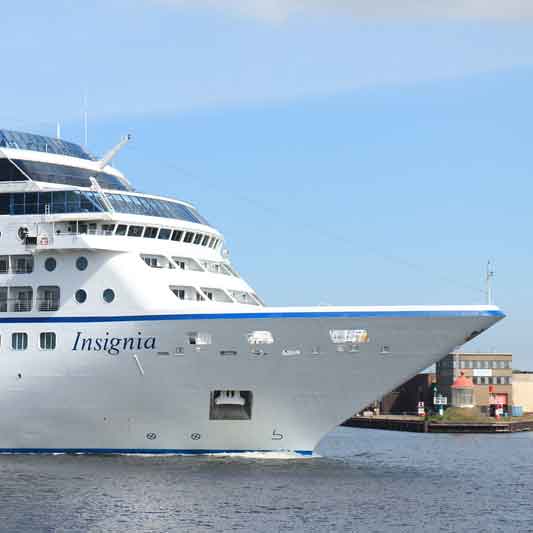A high-end cruise ship, the Insignia, conducted a dramatic rescue operation, saving 68 migrants who were stranded in the Atlantic Ocean near Spain’s Canary Islands. The ship, run by Oceania Cruises, was rerouted to aid the migrants after a bulk carrier, the Philipp Oldendorff, noticed their small vessel.
The Oldendorff first spotted the vessel in distress on Wednesday, June 19, 2024, roughly 506 miles south of Tenerife. The Oldendorff’s crew initially assisted the migrants before the Insignia arrived to complete the rescue. Despite adverse weather conditions, all 68 migrants on board were rescued by the Insignia, according to Salvamento Maritimo, the maritime rescue agency in Spain.
In an announcement, Oceania Cruises confirmed, “We can confirm that Insignia rescued 68 people from a vessel in distress between Cape Verde and Tenerife and [brought] them onboard for medical assistance and provided food, drinks, clothing, and a safe place to rest.” The cruise company placed significant emphasis on the importance of maritime safety and the obligations of seafarers to assist those in danger.
A passenger from the Insignia, Henry Tom from Vancouver, Canada, described the situation: “It took a few hours to rescue those on the fishing boat,” indicating that about five individuals had perished. The Insignia crew managed to recover three bodies while the harsh weather conditions made recovering the remaining two impossible.
The group of rescued migrants consisted of 62 men, three women, and three minors, all hailing from sub-Saharan Africa. One migrant, who was in critical condition, died before an evacuation helicopter could reach the ship. Based on passenger accounts, the vessel carrying these migrants had been at sea for approximately 20 to 30 days.
Another passenger, Steve Dilbeck from Huntington Beach, California shared his experience. “They were brought on board and placed in the Insignia Lounge,” he said. “The area has been closed off to passengers. They had them remove their clothes and put on jumpsuits. Then they asked passengers if they had shoes and clothes they could donate.”
The number of migrants arriving in Spain by sea has significantly increased this year. Government data shows that as of June 15, 23,037 migrants had arrived in the country by sea, a stark increase from 10,824 during the same period the previous year. The Canary Islands have become a significant entry point for migrants attempting the dangerous Atlantic crossing from Africa to Europe.
Earlier this month, the maritime rescue agency saved 145 migrants from a boat near Tenerife. The agency has been activating vessels to handle the surge and provide assistance. However, the journey remains perilous. The Spanish NGO Caminando Fronteras (Walking Borders) reports that over 5,000 migrants have died attempting to reach Spain this year, with the Atlantic route proving especially lethal.

